6 Heart Healthy Nuts and Why They’re Really Good For You
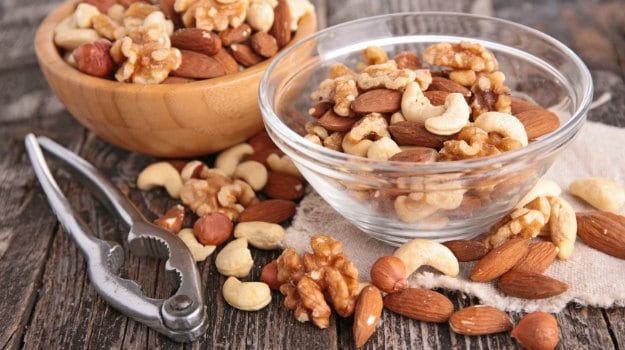
Nuts are great. Not only do they make for a crunchy and filling snack to chomp on between meals, they are also known to boost weight loss, brain power and heart health. These tiny wonders are rich sources of protein, fiber and several antioxidants and anti-inflammatory compounds. Most nuts contain Vitamin E, B2, folate and essential minerals like magnesium, potassium, phosphorus, copper and selenium. Some people may refrain from chomping on these healthy nuts thinking that they are high on calories but Consultant Nutritionist Dr. Rupali Datta clears the air. “Although nuts are fat dense, but have a very healthy lipid profile which is protective to our heart and health. Most fats in nuts are healthy monounsaturated fat and omega-3 fats,” she says.
According to a study conducted by Harvard’s T.H. Chan, School of Public Health, people who regularly eat nuts are less likely to have heart attacks or die from heart disease than those who rarely eat them. Here are five nuts that you must eat every day for a strong and healthy heart.
1. Walnuts: As a kid, your mother may have convinced you to eat these woody nuts daily for better memory and brain power. Turns out that walnut may be good for your heart too. It is probably the best nut for your heart health. The unsaturated fat found in walnuts – omega-3 fatty acids may help in preventing the development of erratic heart rhythms. Omega-3 fatty acids
may also prevent blood clots. Moreover, walnut kernels are known to contain double the amount of antioxidant content than other nuts.
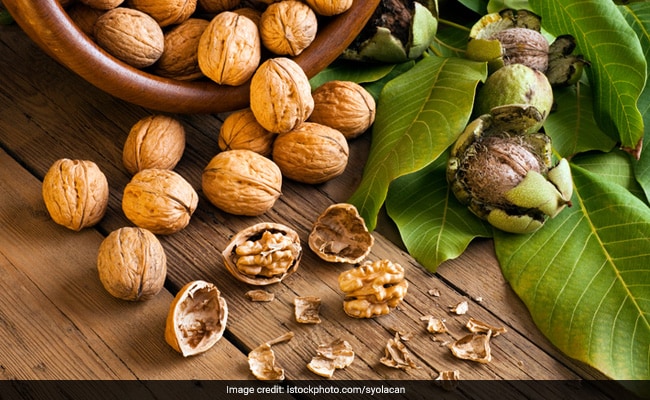
Walnuts are rich in Omega-3 fatty acids.
2. Pistachios:
A study carried out by Diabetes Foundation of India (DFI) and the National Diabetes, Obesity and Cholesterol Foundation shows that pistachios have beneficial effects on glycemic and lipid parameters. Pistachios have a low glycemic index, are naturally cholesterol free, and are good sources of protein, fibre and antioxidants. These qualities make them great for preventing the risk of obesity and heart disease.
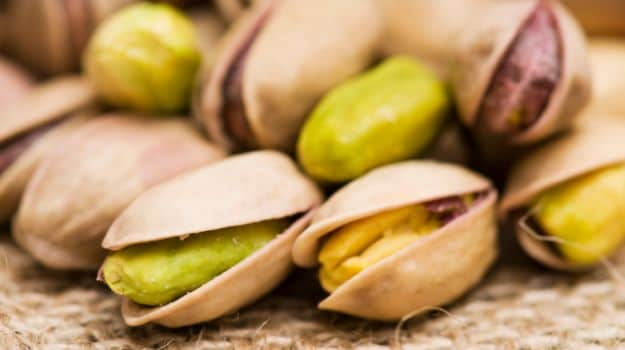
Pistachios have a low glycemic index
3. Almonds: Almond is one healthy nutty delight. Regular consumption of almonds has been linked to lowering LDL (bad) cholesterol levels in innumerable studies. They are rich in monounsaturated fats, fibre, phytosterols, plant protein, tocopherol, arginine, magnesium, copper, manganese, calcium, and potassium makes them heart protective. Arginine, found in almonds, is a type of an amino acid that is required to make a molecule called nitric oxide which is known to relax constricted blood vessels and ease the flow of blood.
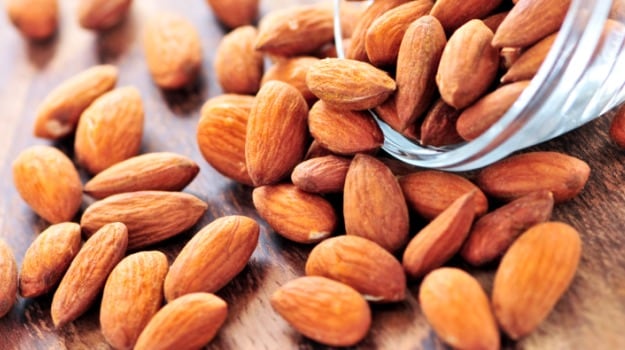
Regular consumption of almonds has been linked to lower bad cholesterol levels. Photo Credit: Istock
4. Peanuts: Peanuts contain a powerful antioxidant called resveratrol which is found in its skin and is known for its heart protective activity. Switching to peanut butter
could be a healthier and protein-rich alternative to processed butter that is full of sodium. Through them in salads and stuff them with the filling in wraps or sandwiches.
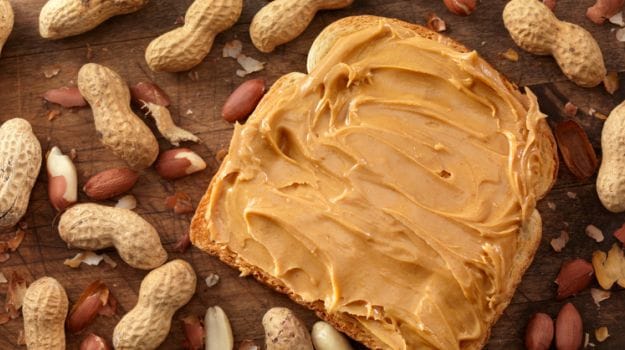
Peanuts contain a powerful antioxidant called resveratrol. Photo Credit: Istock
5. Cashew Nuts:
Cashew nuts are rich in Vitamin E that may help in inhibiting the formation of plaque in your arteries allowing the blood to flow through them smoothly. Development of plaque in the arteries is one of the most common causes of coronary heart disease and heart attack. Sprinkle some cashews on your breakfast cereal or even on stir-fries for lunch.
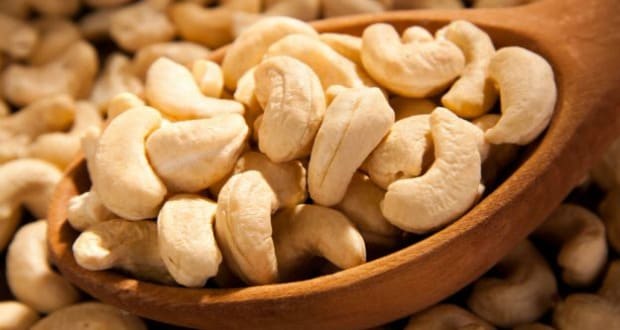
Cashew nuts are rich in Vitamin E. Photo Credit: Istock
6. Hazelnuts: These buttery nuts are full of protein and fiber. They are rich in potassium, calcium and magnesium – minerals that help in regulating healthy blood pressure
. They are also rich in heart healthy oleic acid which is known to lower bad cholesterol levels and raise good cholesterol levels.
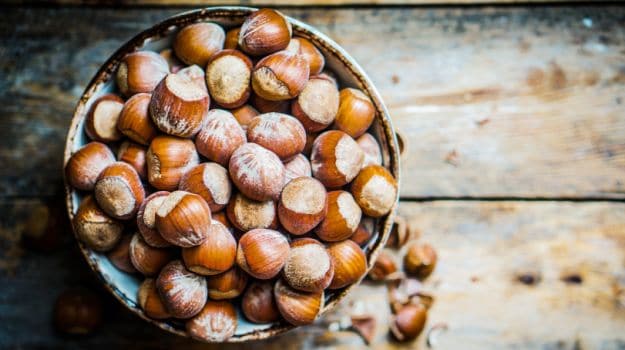
Hazelnut contains minerals that help in regulating healthy blood pressure. Photo Credit: Istock
Given that a lot of scientific studies have validated the fact nuts are good for you heart and overall health, the US Food and Drug Association recommends the consumption of an ounce or 30 grams of mixed nuts daily.
[“source-food.ndtv”]
